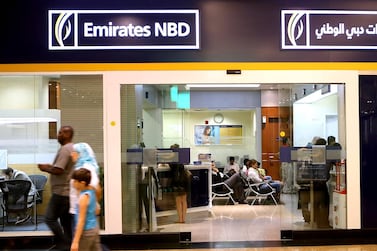S&P Global Ratings maintained Egypt's credit rating at "B" with a stable outlook, citing strong economic growth prospects following fiscal reforms backed by the International Monetary Fund.
The credit rating agency said the country's sovereign rating five levels below investment grade, reflects expectations that its fiscal deficit will gradually narrow.
"The stable outlook balances S&P Global Ratings' expectation that Egypt's current account deficits will remain as a smaller percentage of GDP and that growth prospects will remain strong, against risks of fiscal slippages and an increase in the already-large stock of relatively short-dated government debt issued at high interest rates," S&P said.
Egypt has been implementing economic reforms as part of a three-year $12 billion loan agreed with the IMF, starting from November 2016. The measures included flotation of the exchange rate, energy subsidy cuts and fiscal consolidation.
The North African economy is forecast to expand 5.3 per cent in the fiscal year ending in June, underscoring a recovery from average annual growth of 3 per cent annually from 2011 to 2017, according to S&P.
Egypt's economy is subsequently forecast to grow 5.5 per cent annually over the next three years, S&P said.
Economic progress will be driven by more investments in a "robust" pipeline of projects, increase in natural gas production and a rebound in tourism, according to S&P projections.
"The Egyptian economy is supported by the government's ongoing efforts to improve the business operating environment, including public procurement procedures, the industrial land allocation mechanism and the privatisation of state-owned enterprises," S&P said.
However, private sector activity is still constrained by high, but gradually moderating, inflation and interest rates, the rating agency said.
In April, Egypt’s non-oil private sector economy expanded at the fastest rate since August 2015, driven by a rise in orders, employment and purchasing levels, according to the latest economy tracker by Dubai lender Emirates NBD.
Egypt's overall economic growth projections could improve if Russia and the UK resume passenger flights to the resort town of Sharm El Sheikh, which would boost tourist arrivals, or if the country becomes a significant net exporter of gas, according to the report.
S&P remained upbeat about Egypt's economic strength after the IMF programme ends this year.
"We expect political stability and continuity of economic and fiscal reforms even after the IMF programme ends in November 2019," it said.
S&P projects unemployment will drop to 9.5 per cent this year and continue to fall to 8.5 per cent by 2022, down from a high of 13 per cent in 2014.
Current account deficit is projected to remain stable at around 2.4 per cent of GDP over 2019 to 2022 due to expectations of a reduced energy import bill, a rebound in tourism and resilient remittances.
Foreign direct investments will range between 2.2 per cent and 2.8 per cent of GDP annually over the fiscal year 2019 to 2022. Egypt has introduced new legislation to improve ease of doing business and attract foreign investors.
S&P could raise its sovereign credit rating if Egypt's economic expansion "significantly" outperforms its forecasts, if improvements in its current account sharply reduce external funding requirements and if its reform programme "materially" lowers government debt.
Alternatively, the agency could cut its rating if the country's plan to reduce government debt-to-GDP ratio is derailed by higher borrowing costs or greater currency depreciation than expected. A major fall in foreign exchange reserves, a decrease in world trade volumes or weak security in the country could also add pressure to the rating.








